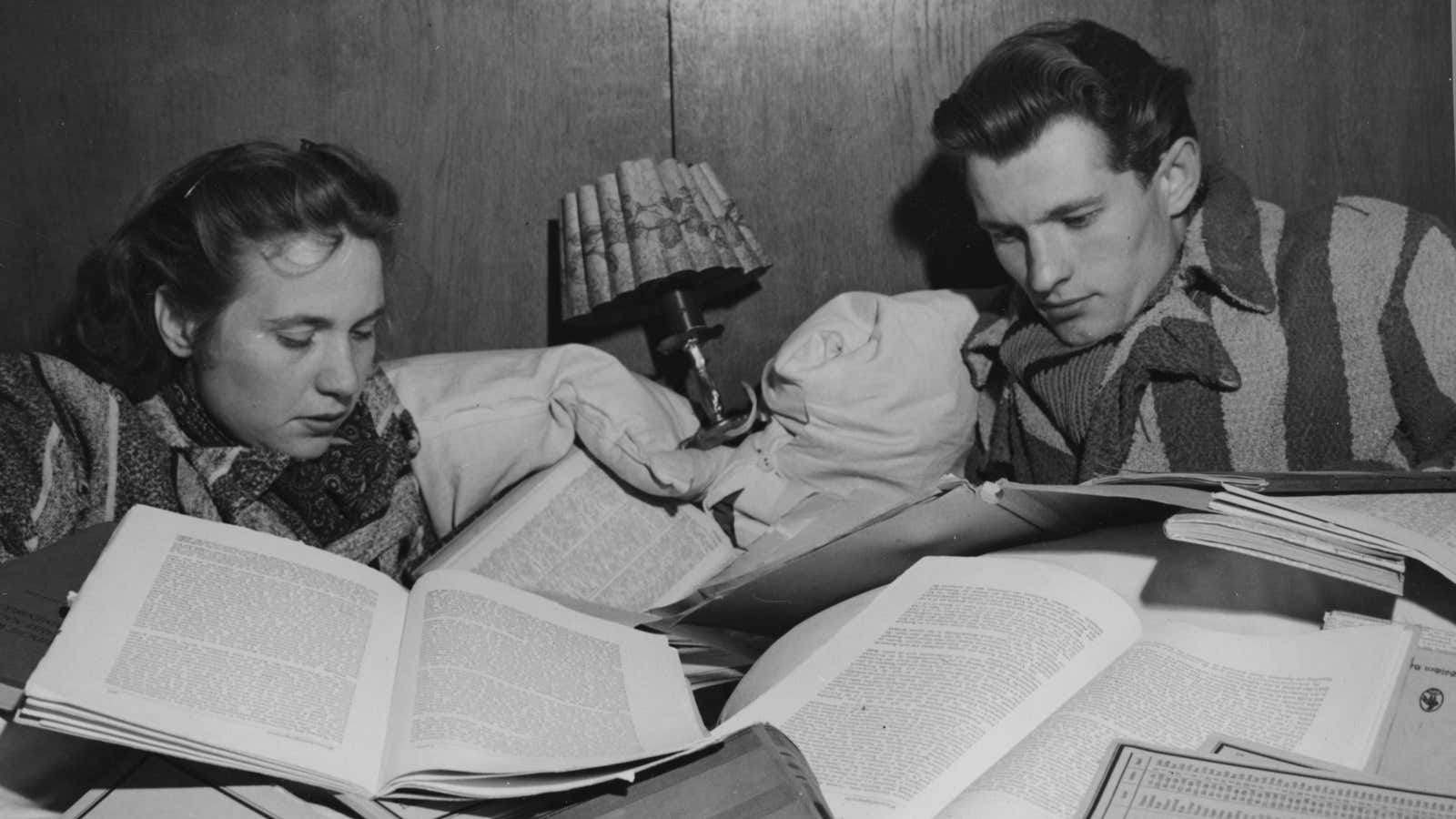For a long time I’ve been reading one book. It’s been five years since I started In Search of Lost Time, and I’m only two-thirds the way through.
That’s fine with me. Each month as I sit down, pen in hand, back straight, at a table—never in bed, on the train, or at the beach—I find myself lost in the mind of a possessive, brilliant young man as he himself is lost in vistas, parties, and his own memories. When I come out on the other side of 50 pages, I’m in a world transformed.
What started as pragmatic laziness—leaving big books at home and traveling with slimmer ones—has led me to a different way of reading. The active ritual of reading one book extremely slowly, patiently, in the same place, over an unreasonably long time, has changed the way I see. It’s a measured meting out of a book, like nibbling one piece of chocolate each night in the same chair over a year. It’s a refusal to hurry up or to turn reading into a life hack; it’s the anti-summer reading, the anti-binge read. It’s site-specific, intensely slow reading, for no other reason than to bask in what’s good.
You don’t have to commit a decade to one literary tome to see what I mean. This practice works well for any long and readable book. It took me forever to read Elif Batuman’s The Idiot, for example, and after months, I’m still reading Chimamanda Ngozi Adichie’s Americanah. I say that without shame.
Americanah is narrated by Ifemelu, a young Nigerian woman who moves to the United States for school and witnesses how the mighty country struggles to deal with its layered problems with Africanness and blackness. The chapters in Americanah are short, about six pages each, so I read one or two most nights that I’m home, around the same time. I never take it out of the house; I never rush or binge. I start and finish other books, while still ambling along, reaching for a delicious sip of lemonade each night before bed.
And each night it’s like having incremental pillow talk with a funny, insightful friend, hearing what impressions she had that day, what she learned, what she wished she had done differently. But you don’t have to talk back, or give advice. You just listen, nod, roll over, and turn off the light. You sigh when she rationalizes cheating on her boyfriend, or when she crumbles after silence from a handsome peer. And the next day you pick up the conversation anew.
By keeping your book in one location each time, you free yourself from the distractions of a commute or the pounding waves of a beach. As a result, a strange new relationship forms, between you, the voice of the book, and the room. Your ritual creates a singular association between the book and a quiet, private place, which in turn gives your relationship a new dimension. Your friend never leaves your room, has never seen you with makeup on, or shoes.
This has the added effect of creating a shared universe between the books you read here. Batuman’s protagonist Selin exists in my mind in the same world as Ifemelu, two very different college-aged women in America, who both ridicule their classmates and confess their humiliations to me after I close the day’s accounting.
You can of course have many friends at once. One friend loves to pump you with facts; one is full of drama and blows through town for just a few days; one is a very slow talker, and reminds you of your grandfather. Each book has its own pace, its own place.
Just as I was drawing out my time with Americanah, I was taking forever to finish Trevor Noah’s Born a Crime. Again, this was not because it was difficult or a slog, but because I only wanted his voice to exist in certain places for me, which was mostly in audio, during a daily walk to work, dodging the anger and fear of a truly pandemoniac Manhattan avenue. Noah’s memoir of his childhood during, and after, South African apartheid, equal parts violence and mischief, transformed the landscape of my commute each day.
If you think you’ve found a good candidate for the ultra slow site-specific read, give it a try. Fight the compulsion to find out what happens, delay the gratification of slamming the book shut to return it to the shelf. You may experience mild shame at telling people you’re still reading the book you said you were reading this time last year. But swallow your pride and just shout it out loud: It’s taking me forever to read this! And that’s the best part.
